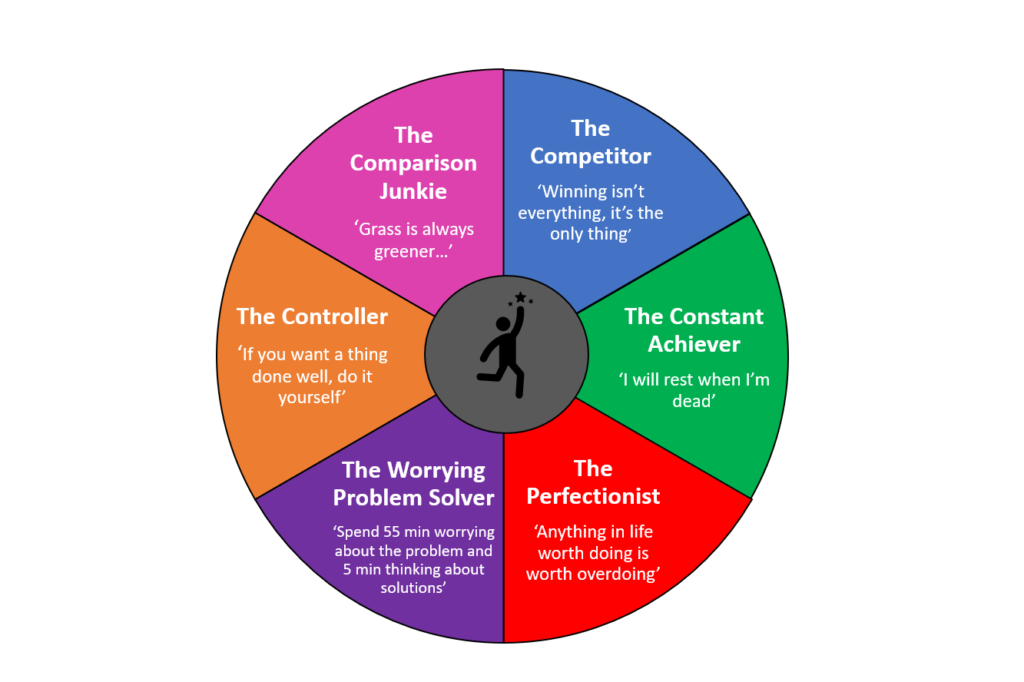This is probably the achiever archetype I identify the most with. People who are Constant Achievers (and I at times) live by the motto:
‘You can rest when you’re dead’.
The constant achiever is a multi-tasker who always juggles several big projects. If you identify as a constant achiever work is always on your mind and you are likely checking emails around the clock.
In your spare time, you renovate your apartment, take a language course or prepare for a marathon (yep, yep and yep)
Everything you do has a purpose and a goal. Your to-do list is your comfort blanket and you likely to most things in life very quickly. As a consequence the constant achiever is rarely in the moment and at high risk of burnout.
Drivers and Fears:
-
-
- Achievement as a safe zone.
- Addiction to the ‘high’ of achievement.
- It is uncomfortable to take it easy, laziness is frowned upon.
- Fear of stopping development.
-
How to overcome:
-
- Get clear on the negative consequences of constantly achieving. List what it does to your health, relationships, and results.
- Practice self compassion. Start with: Avoid saying and thinking judgmental things about yourself, spend time doing things you enjoy, Letting go of external validation.
- Behavioral Experiments: This part was central to the ’achievement detox’ I did a few years ago to limit the damage my achievement addiction. I embarked on a 1 year experiment during which I took on a very junior role at work and banned all achievement focus from my life. It was an eyeopener but also a very painful experience. In Cognitive Behavioral Therapy we instead recommend smaller experiments such as:
- Post on LinkedIn and stop yourself from checking the results for 24 hours 😉
- Have a dinner party without meticulously preparing the food.
- Swim on the slowest lane and allow yourself to be overtaken by everyone
Yep, have tried all of the above and as for most Constant Achievers, it’s hard work and something we need to keep practicing
Next up: The Competitor







